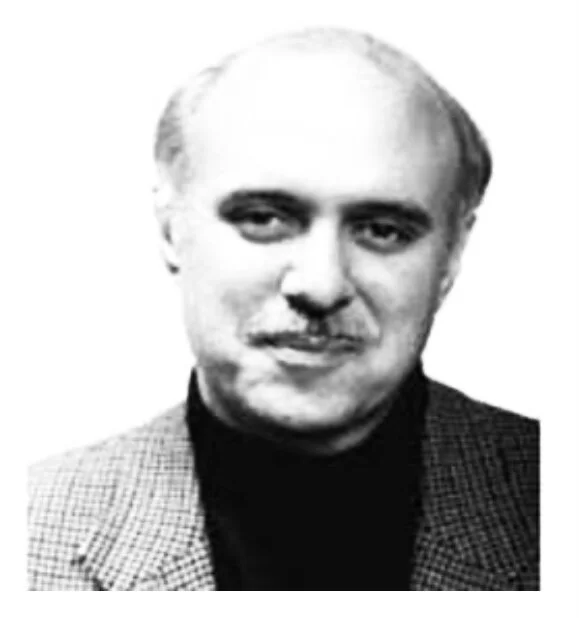This is done in country after country. I was only offered “success” if I would sell out my nation. So I know this is done and I’m showing through patterns who is doing it - with the help of his ultra wealthy backers.
Why is the “establishment” of the United States of America harboring a martyr maker? Why don’t the people have any say? Will the rule of JUST law return to our nation? Have I proven my case yet? There are oceans of evidence to support it and there’s no end in sight to how much more can be found in support of my case.
Philip Cherry, the then head of the CIA station in Bangladesh, was interviewed by Lifschultz in September 1978. He was vague and evasive even about having held the job but did say, "There is one thing. There are politicians who frequently approach embassies, and perhaps have contacts there. They think they may have contacts."
The shift from officer to politician is suggestive. And, those who think they may have of course, contacts may even act as if they do, unless they are otherwise advised.
Not only did Khondakar Mushtaque think he had contacts with the United States government, including with Henry Kissinger himself, but he did indeed have such contacts, and had had since 1971.
In 1973 in Washington, and in the aftermath of the unprecedented revolt of professional diplomats against the Kissinger policy in Bangladesh, the Carnegie Endowment for International Peace (publisher of the magazine Foreign Policy) conducted a full-dress study of the "tilt" that had put the United States on the same side as those committing genocide.
More than 150 senior officials from the State Department and the CIA agreed to be interviewed. The study was coordinated by Kissinger's former aide Roger Morris. The result of the nine-month inquiry was never made public, due to internal differences at Carnegie, but the material was made available to Lifschultz and it does establish one conclusion beyond doubt.
Lawrence Lifschultz
In 1971 Henry Kissinger had attempted the impossible by trying to divide the electorally victorious Awami League, and to dilute its demand for independence.
The link is here.
In pursuit of this favor to General Yahya Khan, he had initiated a covert approach to Khondakar Mushtaque, who led the tiny minority who were willing to compromise on the main principle.
The link is here.
A recently unearthed “Memorandum for the Record" gives us details of a White House meeting between Nixon, Kissinger and others on 11 August 1971, at which Under Secretary of State John Irwin reported: "We have had reports in recent days of the possibility that some Awami League leaders in Calcutta want to negotate with Yahya on the basis of giving up their claim for the independence of East Pakistan."
This can only have been a reference to the Provisional Government of Bangladesh, set up in exile in Calcutta after the massacres, and could only have been an attempt to circumvent its leadership.
The consequences of this clumsy approach were that Mustaque was exposed and placed under house arrest in October 1971, and that the American political officer who contacted him, George Griffin, was declared persona non grata when gazetted to the US embassy in New Delhi a decade later.
Those involved in the military preparations for the coup have told Lifschultz that they, too, had a "two-track" policy.
There were junior officers ready to mutiny and there was a senior officer-the future dictator General Zia–who was ready but more hesitant. Both factions say that they naturally checked with their United States contacts in advance, and were told that the overthrow of Mujib was “no problem."
The link is here.
(August 15 is Napoleon’s birthday. A coincidence?)
This is at least partially confirmed by a signed letter from Congressman Stephen J. Solarz of the House Foreign Affairs Committee, who undertook to investigate the matter for Lifschultz in 1980 and who on 3 June of that year wrote to him: “With respect to the Embassy meetings in the November 1974–January 1975 period with opponents of the Rahman regime, the State Department once again does not deny that the meetings took place."
This would appear to be a rebuff to the evidence of Mr. Cherry of the CIA, even if the letter goes on to say: "The Department does claim that it notified Rahman about the meetings, including the possibility of a coup."
If true, that "claim" is being made for the first time, and in the name of the man who was murdered during the coup and cannot refute it. The admission is stronger than the claim in any case.
Congressman Solarz forwarded the questions about CIA involvement to the office of Congressman Les Aspin of the Permanent Select Committee on Intelligence, which committee, as he said, “has the best chance of obtaining access both to CIA cable traffic and to the relevant figures in the intelligence community."
But the letter he sent was somehow lost along the way, and was never received by the relevant inquiring committee, and shortly afterward the balance of power in Washington shifted from Carter to Reagan.
Only a reopened congressional inquiry with subpoena power could determine whether there was any direct connection, apart from the self-evident ones of consistent statecraft attested by recurring reliable testimony, between the secret genocidal diplomacy of 1971 and the secret destabilizing diplomacy of 1975.
The task of disproving such a connection, meanwhile, would appear to rest on those who believe that everything is an accident.































